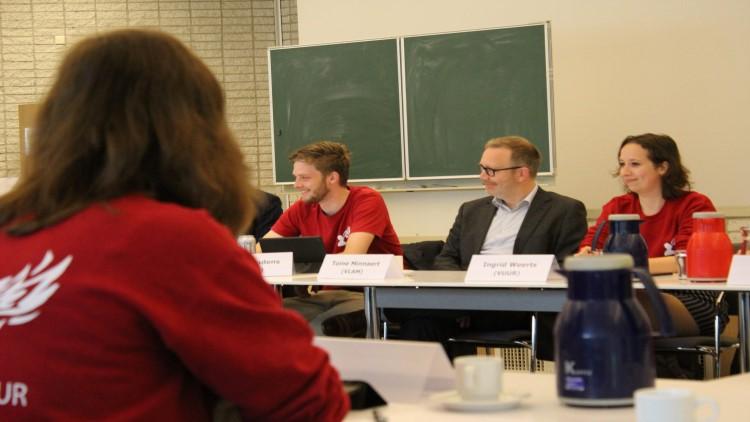'Politicians should take councils more seriously'
Councils want to get out of downward spiral

Rien Wijnhoven is at his wits’ end. How can the Dutch Minister of Education still maintain (link in Dutch, Ed.) that everything is fine with co-determination councils in higher education institutions, when there are so many problems? And why aren't politicians helping these councils?
Wijnhoven chairs the National Platform of University Participation Bodies, also known as its Dutch acronym Lovum. Together with the Association of Participation Bodies of Universities of Applied Sciences (VMH), Lovum is organising a conference to discuss these problems. To start with, councils have been having a hard time finding candidates. When elections do take place, fewer and fewer students and employees bother to vote.
According to the Inspectorate of Education, the uptake at nine universities fell from 32 to 21 percent in the space of four years. The lowest turnout was 6.5 percent. The situation is even worse at universities of applied sciences. “At big ones like Fontys and Avans, only 2 percent of the students vote”, says Wijnhoven. “I would be worried about that if I were an administrator.”
Things do not always go well within the councils either. Only 58 percent of the staff and 65 percent of the students are satisfied with the information provided by the Executive Board, according to a report, which worries Wijnhoven. “It ought to be close to 100 percent. Information is key for a good debate.”
Meanwhile, politicians are passing the buck to participation bodies. Extra money has to be spent in consultation with staff and student representatives, in many different areas.
What can politicians do to help participation councils?
“They should talk to us before yet another new regulation is put into effect. The National Student Association (ISO) and the Dutch Student Union (LSVb) are generally consulted, as are the administrators, but we are not. Even though we have to deal with all those regulations. Sometimes that makes you want to tear your hair out.”
Can you give an example?
“Take Recognition & Reward’. The idea behind it is to reward the activities performed by scientists in a different way. It should no longer only be about publications in top journals. The idea is to have less competition and more teamwork. But then the Minister of Education announces incentive and starting grants for individual researchers. Now the departments are going to devise ways of getting around it. We could have predicted that, with all our experience.”
Should politicians take councils more seriously?
“I believe so. They now regard us as an extension of our administrators. Consequently, we are always one step behind, which makes us less visible. As a result, people are less motivated to take action and vote.”
What are the obstacles to running for a seat in the council?
“The remuneration and facilities are key. Students sometimes fall a year behind with their studies, which can be rather costly. Staff members often have too little time to do it. One can easily spend an entire day a week on it.”
The Parliament has adopted a motion asking for nationwide guidelines.
“Right, but what are they doing about that? I haven’t heard anything yet.”
Maybe administrators don't really see the point?
“I always say: a sensible administrator realises the value of strong participation councils. Your decisions benefit from it and it increases your support base. In fact, by law, administrators have a duty of care for employee and student councils. If you see that some groups are no longer represented, you should want to do something about it, right?”
Do you think the councils are diverse enough?
“We are no longer an accurate reflection of our community. We have few PhD students, few international students and few people of colour, which doesn’t benefit the debate. Higher education institutions aren’t homogeneous communities. Sometimes there are clashing interests. One gets more, the other gets less, and we all have to discuss it together.”
How can you turn the tide?
“We’re going to discuss that on Wednesday. We’re finding ourselves in a downward spiral that we have to break as quickly as possible.”
The conference De toekomst van de medezeggenschap (The Duture of Participation Councils, Ed.) is set to take place on November 9, 13:00, in Utrecht.